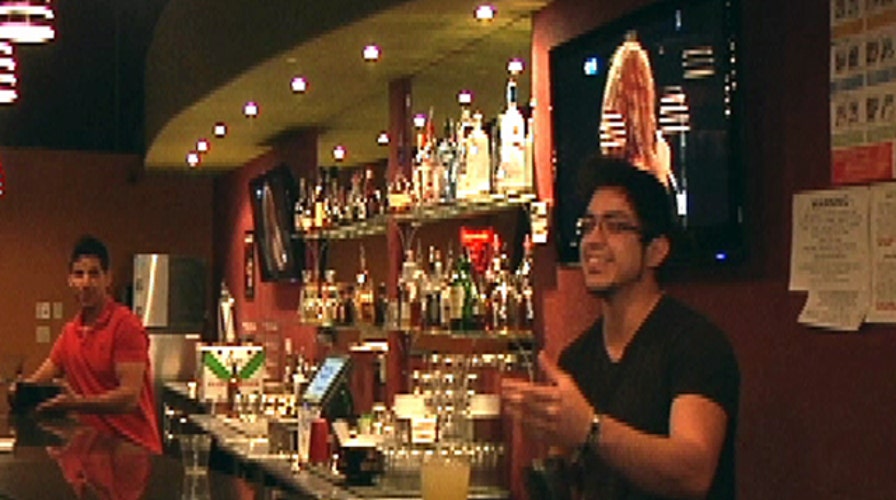Cross border violence bumps up El Paso’s nightlife
When drug violence escalated in Juarez, many bars and restaurants moved into across the border to El Paso.
Juárez’s loss is El Paso’s gain.
The cities, which sit right across each other on their respective sides of the U.S.-Mexico border, have been culturally and financially linked for decades. Traditionally, people from Juárez crossed north to shop and El Pasoans south to socialize with relatives.
But these days, the brutal drug war playing out south of the border has dramatically altered cross-border relations — even when it comes to nightlife.
Fearing out-of-control violence in Juárez, Mexican nationals have permanently moved to El Paso — many taking their successful businesses with them. As a result, the sleepy desert enclave has seen the rise of a high-class, vibrant nightlife.
New clubs, cantinas and restaurants now line the streets of downtown El Paso. The change began after former Mexican President Felipe Calderón launched a war against the country’s powerful drug cartels after he was elected in 2006. The conflict has claimed an estimated 70,000 lives.
But it has been in just the last couple of years that Juárez business owners began relocating.
“El Paso has actually stepped up, raised the bar, you know — meeting the standards of lighting, sound, just the atmosphere of the clubs,” said James Perez, a disc jockey and co-owner of El Paso’s Finest Disco.
Perez said he has seen business increase 35 percent since he opened in 2010. The success stems not just from people in El Paso enjoying their new clubbing options, but also because they’ve kept loyal customers from Juárez. Many families, for example, will now cross north to host traditional functions such as quinceañeras.
Ricardo Villavicencio, general manager of Aroma Grill & Bar, also made the move to El Paso from Juárez. He always had a steady crowd from El Paso, but due to the violence, those customers stopped going south — so he went north, setting up next to University of Texas at El Paso.
“They offer more elegance, or options. Different food, different options,” Villavicencio said of Mexican businesses in El Paso.
He said restaurants throughout Mexico are known for offering superb customer service not often found in American establishments.
“Always attend to the customer, always remain attentive to customers,” Villavicencio said.
Some of his unique dishes include yellow fin ahi, ceviche and queso carioca, a Mexican fondue. The wine list includes bottles priced up to $250.
Before the violence escalated, many teens in El Paso would cross into Juárez on weekends to go to nightclubs — taking advantage of the lower drinking age. For them, the disadvantage of going out in El Paso is not being able to drink alcohol.
Reaping the benefits of it all are not just regular people but the city of El Paso itself — money not spent in Juárez is money now spent in El Paso.
“That influx sheltered us a lot from the recession that a lot of other cities across the county experienced,” said Marissa Monroy, economic development coordinator for the City of El Paso. “We haven’t seen that kind of regression.”
Il Canto Bar & Lounge operated in Juárez for 10 years. After getting threats of extortion, the owner relocated to El Paso. Business is booming, now even with a second location.
Jesus Ovalle, who works as a server and bouncer at Il Canto, knows what he’s talking about — from personal experience.
“I was actually one of those kids that would cross every weekend to go party in Juárez, said Ovalle. “Right now it’s hard times to go across.”
“Whatever you are going to find in Juárez, you are going to find it here,” he added. “I mean, fun, good people, friends — why bother going to Juárez now that it is bad?”

